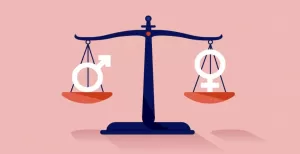One in Two People Globally Lost Income Due to the Pandemic – Gallup
One in two people worldwide saw their earnings drop due to the coronavirus, with people in low-income countries particularly hard hit by job losses or cuts to their working hours, research showed on Monday.
U.S.-based polling company Gallup, which surveyed 300,000 people across 117 countries, found that half of those with jobs earned less because of COVID-19 pandemic disruptions. This translated to 1.6 billion adults globally, it said.
“Worldwide, these percentages ranged from a high of 76% in Thailand to a low of 10% in Switzerland,” said researchers in a statement.
In Bolivia, Myanmar, Kenya, Uganda, Indonesia, Honduras and Ecuador, more than 70% people polled said they took home less than before global health crisis. In the United States, this figure dropped to 34%.
The COVID-19 crisis has hit workers across the world, particularly women, who are over-represented in low-paid precarious sectors such as retail, tourism and food services.
A study by the international charity Oxfam on Thursday said the pandemic had cost women around the world $800 billion in lost income.
The Gallup poll found that more than half of those surveyed said they temporarily stopped working at their job or business – translating to about 1.7 billion adults globally.
In 57 countries including India, Zimbabwe, the Philippines, Kenya, Bangladesh, El Salvador, more than 65% of respondents said they stopped working for a time.
Countries where people were least likely to say they stopped working were predominantly developed, high-income countries.
Fewer than one in 10 of those who had jobs in Austria, Switzerland and Germany said they had stopped working temporarily. In the U.S., the figure was 39%, research showed.
The poll also showed that one in three people surveyed lost their job or business due to the pandemic – translating into just over one billion people globally.
These figures also varied across nations with lower income countries such as the Philippines, Kenya and Zimbabwe showing more than 60% of respondents lost their jobs or businesses, compared to 3% in Switzerland and 13% in the United States.
(Article courtesy: Thomson Reuters Foundation.)
❈ ❈ ❈
Pandemic Created ‘Unparalleled’ Global Employment Crisis, Informal Workers Worst Hit: ILO
Courtesy: Associated Press
United Nations: The COVID-19 pandemic has created an “unparalleled” global labour market crisis that will affect the employment market for years, the International Labour Organisation (ILO) said in a report Wednesday.
The UN agency said that “all countries have suffered a sharp deterioration in employment and national income, which has aggravated existing inequalities and risks inflicting longer-term scarring effects on workers and enterprises”.
The 164-page World Employment and Social Outlook: Trends 2021 report said the crisis has hit vulnerable workers, including two billion in the informal sector, women and young people the hardest.
During 2020, an estimated 8.8% of total working hours were lost — “the equivalent of the hours worked in one year by 255 million full-time workers,” the agency said. By contrast, it said, if there had not been a pandemic, the world would have created an estimated 30 million new jobs in 2020.
The Geneva-based agency said recurring waves of the pandemic around the world have caused working hour losses to remain high, with a 4.4% loss corresponding to 140 million full-time jobs in the first quarter of 2021 and a 4.4% loss in the second quarter equivalent to 127 million full-time jobs.
“The crisis is far from over,” the agency added, pointing to Latin America and the Caribbean, Europe and Central Asia as the worst affected regions in the first half of this year.
The report said an uneven economic recovery is expected to begin in the second half of 2021, driven by progress in vaccinations and large-scale fiscal spending. It projects that the recovery will create 100 million jobs this year and an additional 80 million in 2022, but says that is still far short of pre-pandemic levels.
“To make matters worse, many of the newly created jobs are expected to be of low productivity and poor quality,” the report said.
The agency predicts employment growth will be insufficient to make up for the losses suffered as a result of the pandemic until at least 2023.
It said that many businesses — especially micro and small enterprises — “have already gone bankrupt or are facing a highly uncertain future.”
A survey of 4,520 businesses in 45 countries worldwide in the second quarter of 2020 found that 80% of micro enterprises and 70% of small firms “were facing significant financial difficulties,” the report said.
“Recovery from COVID-19 is not just a health issue,” said the agency’s director, Guy Ryder. “The serious damage to economies and societies needs to be overcome too.”
Without accelerated efforts to create decent jobs and support for the world’s most vulnerable people and hardest-hit economic sectors, “the lingering effects of the pandemic could be with us for years in the form of lost human and economic potential and higher poverty and inequality,” Ryder said.
(Courtesy: Newsclick.)




